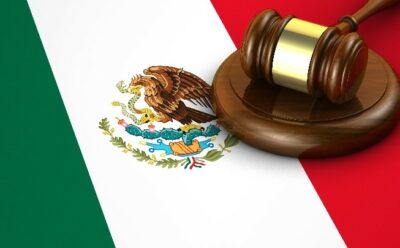By Brenda Cordova, Mexico Attorney
On December 11, 2013, the Mexican government published its new and amended Ley del Impuesto al Valor Agregado (Value Added Tax, VAT) and Ley de Impuesto Especial Sobre Productos y Servicios (Product and Services Tax, IEPS). One of the more relevant amendments to the law was the VAT and IEPS, which are applicable to specific Mexican customs regimes for temporary importations performed by IMMEX, bonded warehouses (deposito fiscal) for the automotive manufacturing and assembly industry, and Mexican Free Trade Zones (i. e. Recinto Fiscalizado and Recinto Fiscalizdo Estrategico). Since then, several amendments to the legislation have been published. Prior to these amendments, importers were not required to pay the VAT or IEPS for purchasing goods from foreign residents, nor for their temporary importations. However, the new laws and rules set forth require that Mexican importers are now responsible for paying the VAT and IEPS taxes. Due to the enacting of these laws, the IMMEX industry publicly stated that their business operations in Mexico would be severely damaged and negatively impacted. Subsequently, they imposed pressure on the government to nullify the amendments. After a few debates and formal meetings, the government agreed to diminish the impact of these laws to those importers that could obtain an “A”, “AA” or “AAA” certification.
These three different types of certification are for those importers who can provide evidence of specific administrative, legal, customs, and fiscal compliance pertaining to their business and trade operations. Several factors inclusive of the importer’s level of compliance, number of employees, volume of exports/imports, investment, shares/stocks, capital assets, are considered when determining whether or not an “A”, “AA” or “AAA” certification will be granted to the importer. Importers showing a higher level of compliance, as well as a higher trade volume within their operations, assets, investment, etc. can obtain the “AAA”. This certification provides a greater advantage and benefits to the applicants. For example, the “AAA” certification is valid for three years and importer may receive a VAT refund within 10 days after the request has been submitted. The “AA” certification is valid for two years and the refund is within 15 days, and the “A” certification is annual and the refund is within 20 days. Some additional administrative advantages and benefits for these certified companies include the ability to file prior disclosures that may allow them the opportunity to correct their irregularities. Importers who are normally required to file pedimentos for each customs operation, may instead file a consolidated pedimento (Mexican customs entry forms) that may cover all the customs operations performed during a month’s period. Lastly, approved importers may temporarily import goods without the need to provide the corresponding serial number, a change from the normal reporting requirement.
During 2014, the application process in order to become “A”, “AA” or “AAA” certified must be filed during specific periods of time. This would depend on where the business is located in accordance to the following chart:
| Country region | Period of time |
| Pacific North | April 15th to May 15th |
| Northeast | June 3rd to July 3rd |
| North Center | July 7th to August 7th |
| Center | August 7th to September 8th |
| West and south | September 22nd to October 22nd |























